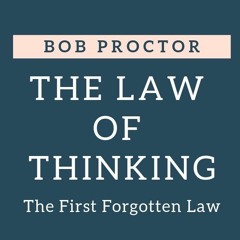


They list a number of occupations they feel have long-term potential in this area. “Very often those who supply the affluent become wealthy themselves.” The authors discuss how one of the best ways to make money is to sell products or services to those who already have money. They are proficient in targeting market opportunities.The authors clearly believe that giving money to adult children damages their ability to succeed. Their adult children are economically self-sufficient.The authors' research indicates that “the more dollars adult children receive, the fewer they accumulate, while those who are given fewer dollars accumulate more”. That is, most millionaires were not financially supported by their parents. Their parents did not provide economic outpatient care.There's even an appendix showing the average price-per-pound for the most popular models.) And the authors go on ad nauseum about the average price per pound of various vehicles. It may be the worst chapter I've ever read in any personal finance book. (There's an entire 31-page chapter devoted to how millionaires shop for cars. They drive mundane domestic models, and they keep them for years. The authors spend far too much time beating home this point: usually millionaires don't have fancy cars. They believe that financial independence is more important than displaying high social status.In other words, the more time someone spends buying things that look good, the less time they spend on personal finance. The authors note that “there is an inverse relationship between the time spent purchasing luxury items such as cars and clothes and the time spent planning one's financial future”. They begin earning and investing early in life. They allocate their time, energy, and money efficiently, in ways conducive to building wealth.They're willing to pay for quality, but not for image. They take extraordinary steps to save money. Not only do they self-identify as frugal, they actually live the life. In the course of our investigations, we discovered seven common denominators among those who successfully build wealth. This is contrary to those who would have you believe that wealth is usually inherited. 80% of America's millionaires are first-generation rich.They share other characteristics as well. The wealthy, on the other hand, generally have a high income and a frugal mindset. But those with low incomes who spend are in the biggest trouble of all. They need to learn to play financial “offense”. Sure they have the money now to fund their hyperconsumer lifestyle, but what happens when that money goes away? It's also difficult for low-income frugal folks to acquire wealth. High-income spenders live in a house of a cards. It's as if people can be classified based on the following table (which is my own invention based on the authors' findings): It's refreshing to read a book that makes it clear that both are required to succeed. Most books focus on only one side of the wealth equation: spending less or earning more. In order to accumulate wealth, in order to become rich, one must not only earn a lot (play “good offense”, according to Stanley and Danko), but also develop frugal habits (play “good defense”). They live hyperconsumer lifestyles, spending their money as fast as they earn it. Most people with high incomes fail to accumulate any lasting wealth. Many people who earn high incomes are not rich, the authors warn. This is a subtle but important difference. Instead, it profiles people who have already become millionaires. It is built on years of research, on a body of statistics and case studies.
THE MILLIONAIRE NEXT DOOR AUDIOBOOK HOW TO
Some personal finance books promise to show the reader how to become a millionaire.


 0 kommentar(er)
0 kommentar(er)
